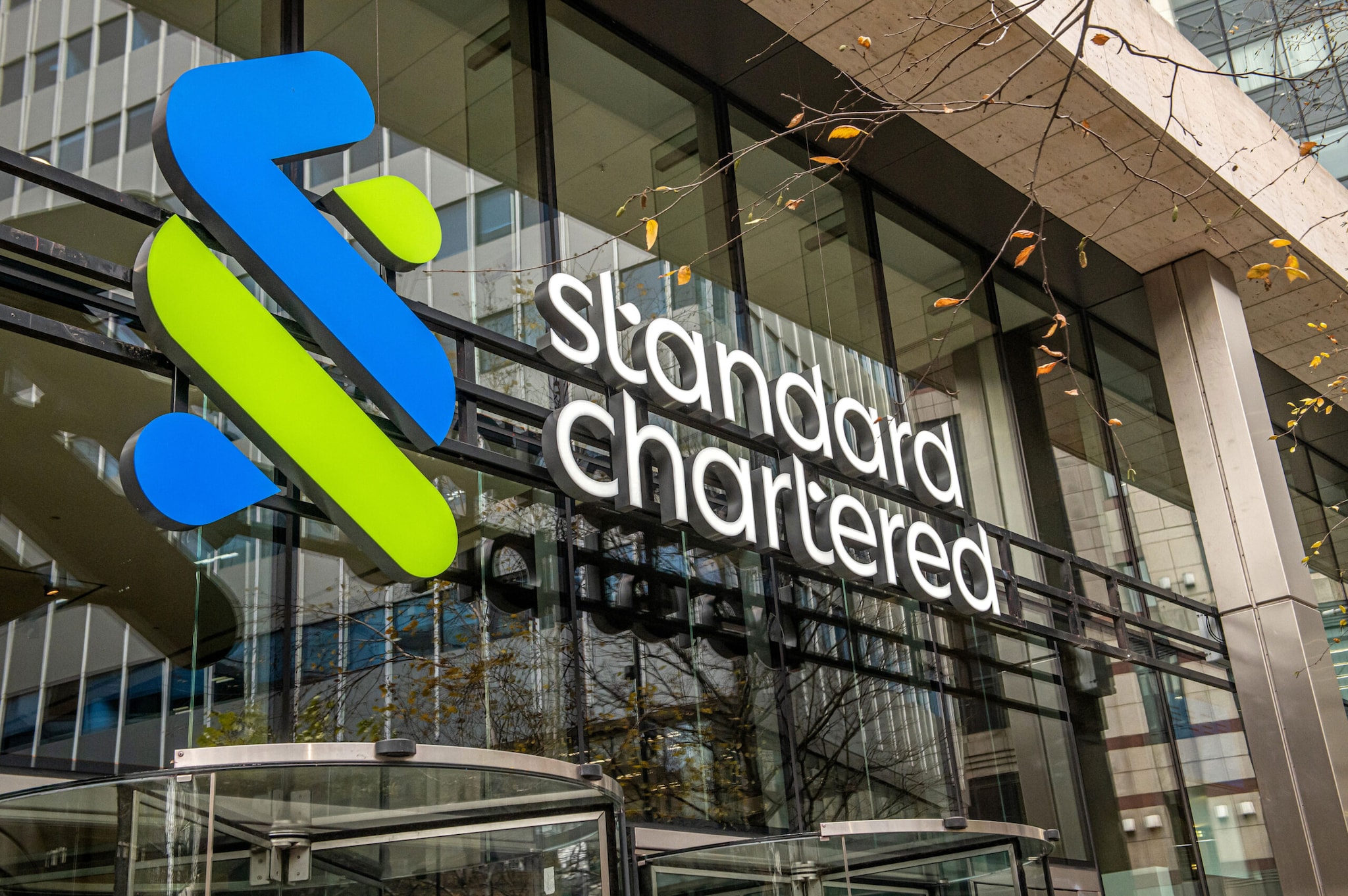Standard Chartered Taps FalconX to Expand Institutional Crypto Access
15.05.2025 13:00 1 min. read Alexander Stefanov
Standard Chartered is accelerating its move into digital assets through a newly announced alliance with FalconX, a prime broker serving institutional crypto traders.
The partnership, unveiled May 14, will give FalconX access to the bank’s global infrastructure and deepen its currency trading capabilities.
More than a traditional banking agreement, the collaboration lays the groundwork for expanded services tailored to the evolving needs of institutional crypto participants. The two firms plan to co-develop solutions that cater to fund managers, payment platforms, token issuers, and other large-scale players entering the digital asset economy.
FalconX’s Matt Long described the bank as a rare example of a legacy financial institution aligning closely with crypto-native needs, while Standard Chartered’s Luke Boland emphasized their commitment to supporting trusted access points for institutions navigating the crypto space.
This isn’t Standard Chartered’s first foray into digital assets. The bank recently piloted a tokenized collateral program with OKX and has been active in the sector since its early investment in Ripple nearly a decade ago.
As traditional finance firms increasingly eye the crypto frontier, this latest partnership reflects a broader shift: global banks are no longer sitting on the sidelines—they’re building the infrastructure to meet rising institutional demand.
-
1
History Shows War Panic Selling Hurts Crypto Traders
28.06.2025 18:30 3 min. read -
2
Ripple Faces Legal Setback as Court Rejects Bid to Ease Penalties
26.06.2025 16:54 1 min. read -
3
Coinbase Surges 43% in June, Tops S&P 500 After Regulatory Wins and Partnerships
29.06.2025 21:00 2 min. read -
4
Ripple Has Applied for a National Banking License
03.07.2025 7:00 2 min. read -
5
What Will Happen With the Stock Market if Trump Reshapes the Fed?
29.06.2025 13:00 2 min. read
Bank of America CEO Confirms Stablecoin Plans Are in Motion
Bank of America is actively developing a stablecoin offering, CEO Brian Moynihan revealed during a post-earnings conference call on Wednesday.
PayPal Expands PYUSD to Arbitrum in Latest Blockchain Push
PayPal has expanded its stablecoin, PayPal USD (PYUSD), to the Arbitrum network, marking a key step in its strategy to integrate with faster, more cost-efficient blockchain infrastructure.
Citigroup Explores Launching Stablecoin as Banks Embrace Crypto Shift
Citigroup is evaluating the potential launch of its own U.S. dollar-backed stablecoin, signaling a growing shift in sentiment among traditional financial institutions toward digital assets.
JPMorgan CEO Jamie Dimon Comments Stablecoins
JPMorgan Chase CEO Jamie Dimon remains skeptical of stablecoins—but says ignoring them isn’t an option for the world’s most powerful bank.
-
1
History Shows War Panic Selling Hurts Crypto Traders
28.06.2025 18:30 3 min. read -
2
Ripple Faces Legal Setback as Court Rejects Bid to Ease Penalties
26.06.2025 16:54 1 min. read -
3
Coinbase Surges 43% in June, Tops S&P 500 After Regulatory Wins and Partnerships
29.06.2025 21:00 2 min. read -
4
Ripple Has Applied for a National Banking License
03.07.2025 7:00 2 min. read -
5
What Will Happen With the Stock Market if Trump Reshapes the Fed?
29.06.2025 13:00 2 min. read


